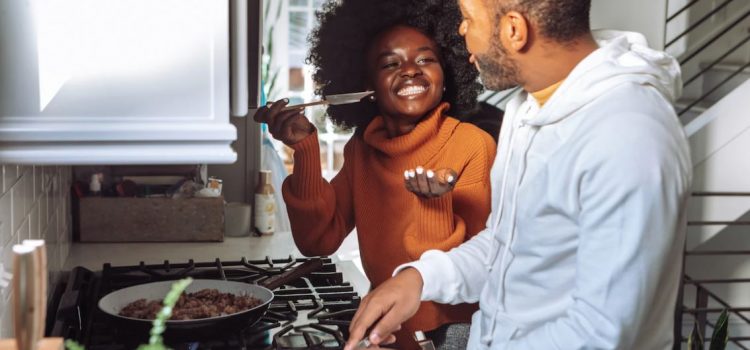

This article is an excerpt from the Shortform book guide to "Flourish" by Martin E. P. Seligman. Shortform has the world's best summaries and analyses of books you should be reading.
Like this article? Sign up for a free trial here.
Do you want healthier relationships? What’s the connection between positive relationships and well-being?
Humans are naturally social creatures, and connecting with others makes our lives better. You can improve your well-being by learning to build stronger, more positive relationships in your life.
Check out how positive relationships affect your well-being.
Foster Positive Relationships
Flourish by Martin E. P. Seligman says that positive relationships and well-being go hand-in-hand. He recommends three ways to build better relationships in your life:
1. Learn to celebrate others better. Strengthen your relationship by improving how you respond to someone’s good fortune or news. He cites the research of Shelly Gable, who explains four main ways people respond to other people’s good news:
- Active and constructive: You engage with and build upon their joy—for example, “I’m so happy for you! How did it make you feel? How do you plan to celebrate?”
- Passive and constructive: You give positive feedback but without engaging—for example, “That’s good to hear.”
- Active and destructive: You engage but focus on the negatives—for example, “But doesn’t that mean you’ll have even more work to do?”
- Passive and destructive: You don’t acknowledge their news at all—for example, “I had a pretty tiring day at work.”
To build flourishing relationships, use the active and constructive communication style: When someone shares something positive that happened to them, validate their joy and ask questions that encourage them to talk more about the situation. By responding this way, you maximize the happiness they feel and learn more about them, which makes you feel more connected.
| Why Celebrating Better Improves Relationships Researchers explain that celebrating others well amplifies the happiness they feel about the good things in their lives and thus leads to higher-quality relationships with them. People like to share their good events with others so they can feel even happier and more satisfied with the event—a process known as capitalization. When you respond enthusiastically when others share good news, you foster a closer and more trusting relationship. But capitalization doesn’t work well if the person we share our good news with doesn’t respond positively. A passive or destructive response might signal to the other person that you’re envious of them, which puts distance in your relationship. An active constructive response, on the other hand, signals a lack of jealousy and has many benefits for both the person who shares their good news and the person who responds: It can strengthen the relationship, increase trust and intimacy, and reduce conflict. |
2. Use more positive statements. Seligman suggests you pay attention to how often you use positive and negative statements in your relationships, as this predicts the strength of our relationships. He cites research showing that a good relationship requires a 3:1 ratio of positive to negative statements—that is, at least three compliments, encouragements, or appreciations for every criticism or complaint. To improve your relationships, focus on saying more positive than negative things to others.
(Shortform note: We need a higher ratio of positive to negative statements to have good relationships because of the negativity bias. Psychologists explain that humans have evolved to be more sensitive to negative things—you pay attention to them and remember them more than positive things. Because of this, we need more positivity to offset the negativity. If you struggle with remembering to be more positive, in The Happiness Project, Gretchen Rubin suggests creating a visual reminder, such as wearing a piece of jewelry or putting up a sticky note.)
3. Perform random acts of kindness. Seligman writes that doing something kind for others can significantly improve your mood and well-being. It can also help you feel connected with others, which researchers argue can actually make you live longer.
(Shortform note: Researchers have found many health benefits to thinking about, doing, or even witnessing kind acts. Performing a kind act triggers your brain to release different neurochemicals, including oxytocin, serotonin, dopamine, and endorphins. Oxytocin promotes a sense of connection and helps you live longer by reducing your blood pressure and inflammation, which reduces your risk for diseases like diabetes and cancer. Serotonin and dopamine activate the pleasure centers in your brain and make you feel satisfied. Your brain might also release endorphins, which serve as painkillers.)

———End of Preview———
Like what you just read? Read the rest of the world's best book summary and analysis of Martin E. P. Seligman's "Flourish" at Shortform.
Here's what you'll find in our full Flourish summary:
- Why happiness is not the key to enjoying life to the fullest
- Why we should be focusing on well-being over happiness
- Actionable advice for enhancing global and personal well-being






